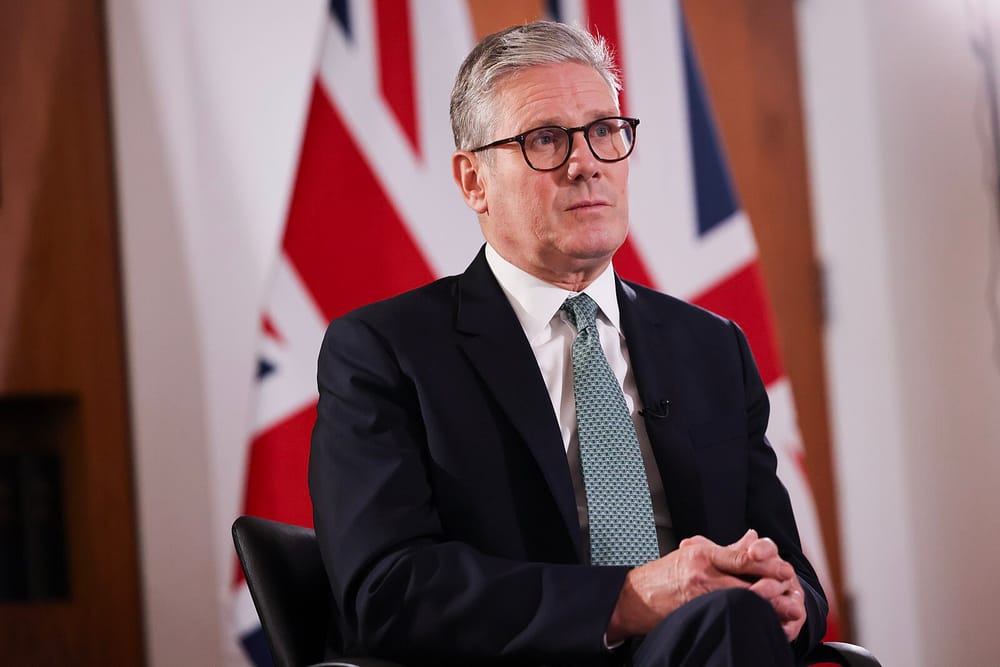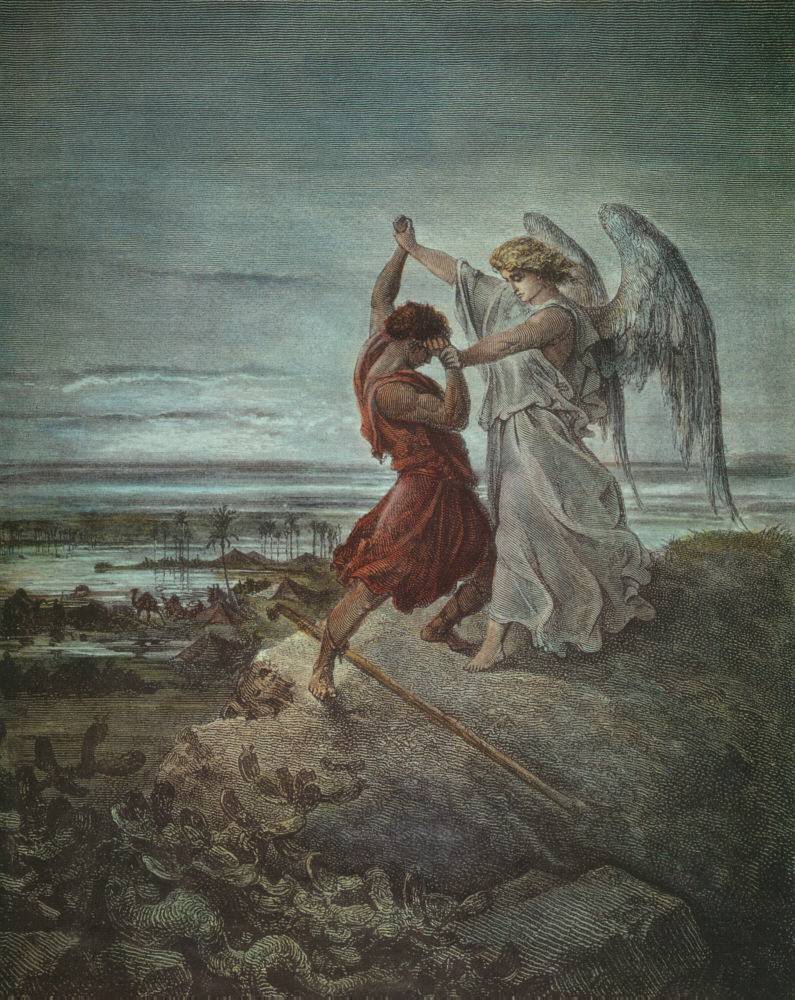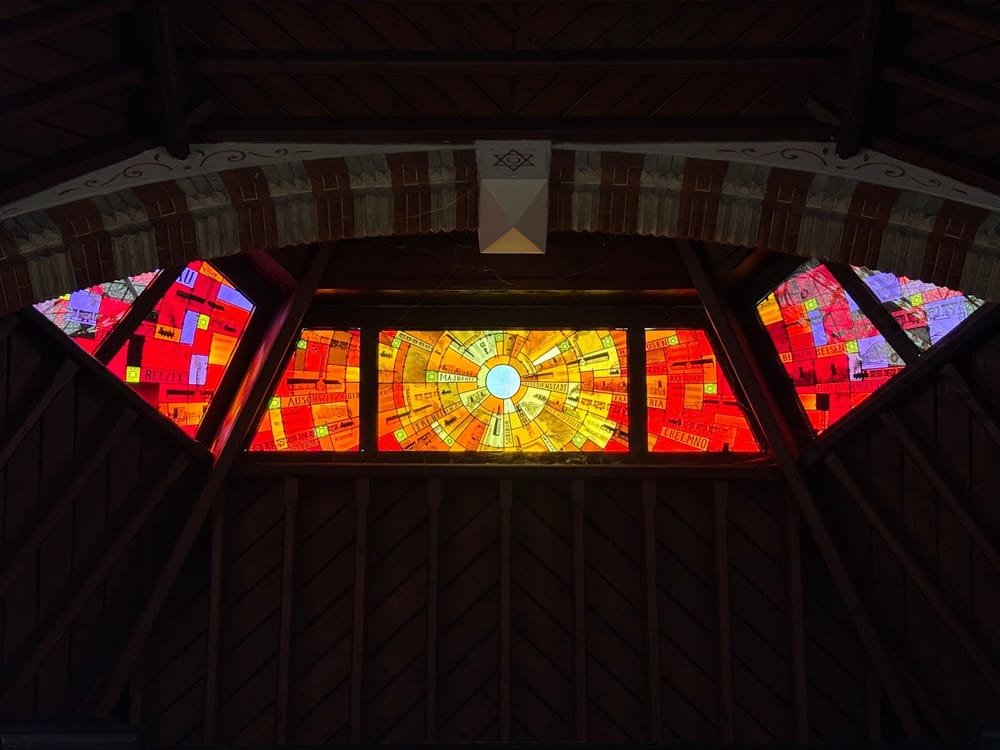How transphobes became the voice of British Jewry
The same commentators who have marketed themselves as authorities on antisemitism are among Britain’s most prominent purveyors of transphobia.
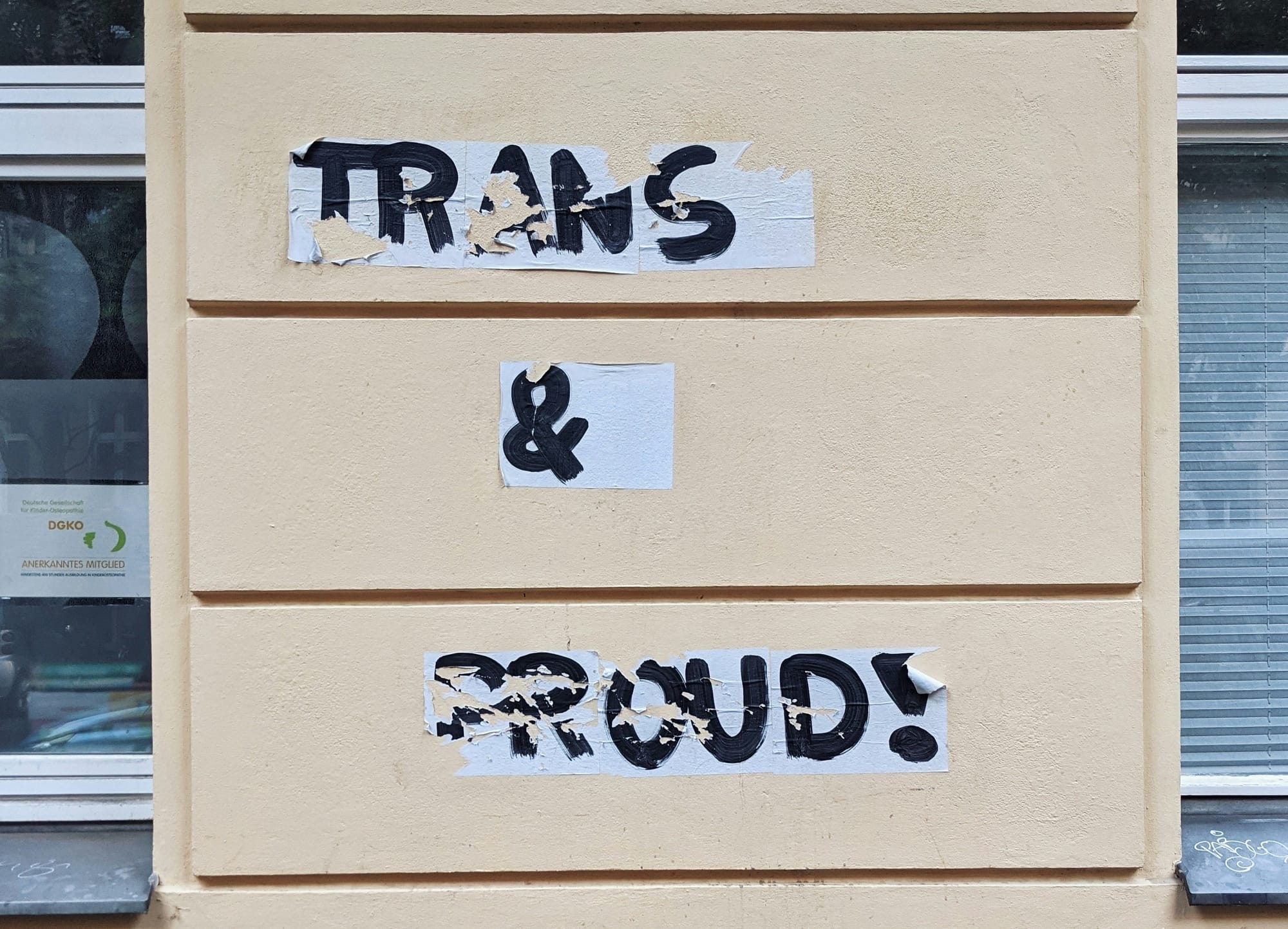
British Jews have a transphobia problem. Given the antisemitism that lies at the core of many transphobic conspiracy theories, one would perhaps have expected to see the organised Jewish community at the forefront of the resistance to transphobia, but recent years have shown the opposite to be the case. In fact, among Britain’s most prominent purveyors of transphobia are a cohort of centrist and rightwing Jewish commentators — the same ones who have marketed themselves as authorities on antisemitism.
Many of these self-proclaimed spokespeople for the Jewish community gained prominence through their attacks on Jeremy Corbyn’s Labour. Their supposed expertise on antisemitism elevated them to national political relevance, which in turn gave them the legitimacy to become active participants in the right’s favourite post-Corbyn culture war: trans rights.
The list is extensive, and includes David Baddiel, who has promoted the book Trans by Helen Joyce; Countdown star and Corbyn critic Rachel Riley, who suggested that “a lot of the attacks on JK Rowling are really because she spoke out for Jews and against Jeremy Corbyn and antisemitism”; as well as former Jewish Chronicle editor Stephen Pollard, right-wing columnist Melanie Phillips, and legal expert Anthony Julius.
Undoubtedly the most prominent Jewish transphobe in the UK media, however, is Sunday Times columnist Hadley Freeman. For years, Freeman has been a vocal proponent of the argument that trans rights are in competition with the rights of cis women and girls. She opposes what she calls “gender ideology”, defined as the belief “that being a woman has nothing to do with biology, but is down to some undefinable inner feeling.” Ideologies don’t have needs or rights, and to Freeman, that’s all being trans is.
Her conspiratorial columns are peppered with invented proponents of gender ideology who must be resisted. Cautious British doctors must oppose Big Pharma and American healthcare norms to deny healthcare to young trans people; editors at major publishers must stand up to the tyranny of queer and LGBTQ-friendly junior staff; transphobic parents must assert authority over their trans children – “Say no and let them hate you,” one is quoted as saying.
Since the Hamas-led 7 October attacks on southern Israel, these same commentators have once again become the go-to thought leaders for educating the wider public about Israel and antisemitism. Naturally, their interventions have included speaking at and promoting the recent “March Against Antisemitism” despite its anti-Palestinian framing and support from sections of the far-right, as well as calling for police to use the full extent of their powers to suppress Palestine solidarity marches.
The continued platforming of these voices as the arbiters on antisemitism in Britain is doing significant harm to both the Jewish and trans communities. So how did we get here?
An existential threat
On one level, these commentators’ transphobia functions as a continuation of their Corbyn-era attacks on the left. Evidently, the right has learned that bigotry is more effective when it appears to serve a progressive cause, whether that’s protecting Jews from racism or protecting women from male violence. The left as a whole can be attacked for supposedly failing to listen to a vulnerable group, and members of that group with bigoted beliefs leverage their identities to lend legitimacy to the critiques.
Having opposed Corbyn is certainly no guarantee of transphobia; the Jewish comedy writer Sara Gibbs, for example, who was a consistent critic of his, wrote in the Jewish News earlier this year that Jews should stand with the trans community. But the fact that many purveyors of fear about antisemitism from the Corbyn years have gone on to demonise trans people points to a further connection between rightwing instrumentalisation of antisemitism and transphobia. In fact, these two movements are ideological fellow-travellers, unified by a foundation of extinction phobia.
The idea that lesbians are going extinct has become an animating fear among anti-trans commentators — the latest moral panic used to bolster far-right nationalist projects. Exploring this idea further, C. Heike Schotten has examined the connections between anti-trans lesbian separatist movements and contemporary political Zionism.
In both cases, Schotten explains, a group of adherents to an ideology cast themselves as representatives of a wider oppressed group. The ideologues fear extinction not from white supremacist patriarchy, but from members of a more marginalised group – Palestinians or trans people – who are reframed as an existential threat. This “terrified anxiety” justifies trampling on the rights of the more marginalised group in order to ensure survival – a politics Schotten describes as “right-wing annihilationism”.
Kathleen Hayes – an American writer and self-identified “TERF” who recently completed a masters in London – makes the connection between Jewish extinction phobia and transphobia explicit in a 2022 article in Fathom, the journal of the British Israel Communications and Research Centre: “A mind persuaded to reject the reality of biological sex is one unlikely to recognise basic facts about the Holocaust, or about living Jews,” she writes. “Jews and women are both in the forefront of an assault coming from left and right. We either fight it together – or go down separately.”
In reality, of course, this couldn’t be further from the truth: Jews and women who cave to reactionary impulses and allow their identities to be wielded against other marginalised groups are harming themselves and those they claim to be protecting.
Silence speaks volumes
In her attack on the journalist Owen Jones in a recent Jewish Chronicle article, Freeman promotes a similar conflation, intertwining her opposition to trans people and supporters of Palestine in a display of extinction phobia and right-wing annihilationism.
“People work extremely hard to see women and Jews as the privileged and never the oppressed,” she begins. Her piece, nominally addressing the unwillingness of some commentators on social media to countenance the possibility that Hamas militants committed acts of sexual violence on 7 October, uses Jones as a (false) representative of this media response.
Firing across battle lines drawn when Labour antisemitism regularly made headlines, Freeman attempts to explain Jones as “a loyal Corbynite and gender ideologue” who “neatly combines the au courant tendency to deny Jews’ experiences of antisemitism and women’s fears of male violence.”
Freeman inexplicably suggests trans activists are responsible for scepticism about the allegedly widespread sexual violence against Israeli women on 7 October: “For a bright, brief moment people tended to care about [sexual violence] during the MeToo movement. But that changed like a fashion with the rise of the gender-rights movement, which argues that a man who says he’s a woman magically becomes one.
“When women – including JK Rowling – explained that their experience of sexual assault made them anxious about the prospect of men having access to female-only spaces, they were accused of – yes – ‘weaponising their trauma,’” Freeman continued.
Her column responds not to real-world events, but to a reaction to the Israeli propaganda machine’s telling of them, without any consideration of the Israeli government’s disturbing use of the alleged assaults – just as the temporary ceasefire crumbled – to legitimise ravaging further destruction on Gaza. Freeman offers her readers a politics of insularity based fundamentally on a cynical perversion of intersectional solidarity that ultimately harms everyone – Jews included.
Indeed, just as Israel aligns itself with far-right antisemites like Victor Orban, Giorgia Meloni and Elon Musk when it serves its foreign policy interests, Freeman is willing to ignore antisemitism and Holocaust denial from fellow anti-trans activists when it suits her purposes. She has, for example, defended the portrayal of goblins in the Harry Potter franchise, which is widely considered to reinforce antisemitic stereotypes, and repeatedly stood up for the anti-trans Labour MP Rosie Duffield, who is now being investigated by the Labour party for liking a tweet denying that the Nazis targeted trans people.
The British Jewish community’s embrace of transphobes like Freeman, much like its trenchant Zionism, elevates a Jewish identity rooted in fear and creates a smaller and more isolated Jewish world.
Many Jews, one opinion
Freeman remains celebrated in many Jewish spaces. A prominent journalist and author, she can be found writing regularly for the Jewish Chronicle, speaking at JW3 and having her book selected for Yad Vashem UK’s book club.
She was featured prominently at this year’s Jewish Book Week in a talk about “the challenge of liberal Zionism”. The two men on stage with her – Jonathan Freedland and Anthony Julius – as well as David Hirsh, whose London Centre for the Study of Contemporary Antisemitism sponsored the talk, and her current and former editors at the Jewish Chronicle, which partners with Jewish Book Week, all appear to share or at least condone her gender-critical outlook. Meanwhile, I couldn’t find evidence that Jewish Book Week has ever featured an openly trans author.
The fact that these voices are so influential within the Jewish community and represent us to the non-Jewish British public is deeply concerning. Their combination of vitriol directed at marginalised outsiders and politically convenient inconsistency in identifying antisemitism and Holocaust denial calls into question their legitimacy as commentators on both antisemitism and misogyny.
Fortunately there are groups working to make British Jewish life more trans-inclusive. Queer Yeshiva runs courses for those interested in studying Talmud through a queer lens, while theatre collective Homos and Houmous celebrates queer Jewishness with its combination of drag and klezmer. Queer and trans people are well-represented on the Jewish left, from Sadeh Farm to Na’amod, and Jewish Solidarity Action helped out at London Trans Pride in July, modelling the kind of care that we as Jews should offer other marginalised communities. There are also vocally trans-inclusive shuls like Beit Klal Yisrael in London and Brighton and Hove Progressive Synagogue, while Liberal Judaism generally has a long history of LGBTQ+ inclusion.
Groups like these make me hopeful that there can be inclusive Jewish spaces, but trans inclusion should not be a fringe position. British Jewish institutions can’t prevent the transphobes in our community from writing columns in right-wing newspapers, but they can – and should – realise that consistently elevating those same voices, even on unrelated subjects, sends a message to queer and trans Jews that we are not welcome.▼
Sasha Baker is an investigative journalist.
Author
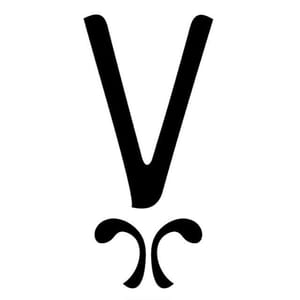
Sasha Baker is an investigative journalist.
Sign up for The Pickle and New, From Vashti.
Stay up to date with Vashti.

